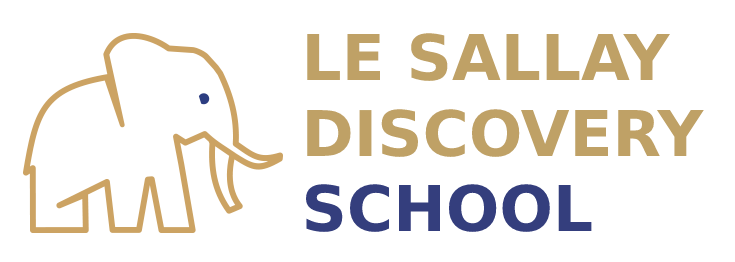"Some of the kids I work with see their middle school years as a black hole, three or four years they have to endure before high school"
We have invited Nelly Tkach who has joined the Le Sallay Discovery team as a psychologist to tell us more about her work and her views on the challenges children and parents face in middle school.
14 October 2022

- Nelly, could you please tell us a bit about your background?
I am based in Seattle where I work as a child and adolescent psychologist. My work is more focused on education rather than on therapy. In the past, I was a social worker, a clinical research coordinator, and a translator. I have been involved in many education projects, for example, helping kids prepare for exams or adapt to US schools. I often work with children from families who have recently moved to America. These kids are just finding ways to fit in. My work is as much academic as it is psychological. There are a lot of conversations with parents who do not know how to navigate the education system or how to adjust their expectations when facing the limitations imposed by the existing education models.
- One of the existing models, homeschooling, has expanded dramatically during the COVID-19 pandemic. Homeschooling can be difficult to sustain without parents or children getting frustrated or losing motivation. What is your experience with homeschooling?
- In middle and high school students often start to struggle with their motivation to study. Is this a problem with homeschooling?
- How does blended learning fit into this process? We feel like it could be an appropriate transition model for those children who have been homeschooled. How do you think blended learning can benefit kids and their parents?
The blended learning concept is quite straightforward and there was a lot of discussion of its benefits during the pandemic. Yet, I have never come across the fully-realized blended learning model before I got to know the Le Sallay schools. I have seen how it works at Le Sallay Academy in Europe and I am excited that we are now able to offer this opportunity here, in the United States.
- Many parents can’t tell the difference between blended learning and online classes in a regular school.
- In our school, blended learning allows for every student to have an individually tailored education plan that takes into account their level of proficiency and pace of learning.
- What do you think is happening here? Is it a combination of factors such as an increasing number of subjects and changes in curriculum?
It’s partly that. It’s also a fact that middle schools are too big, often there are several primary schools packed into one junior high school. There can be up to two thousand students, and it becomes very crowded. At the same time students who felt like the oldest kids in primary school, find themselves in the role of middle school freshmen. Being a sixth-grader can feel light years away from being an eighth-grader if you take into account all the psychological and physiological changes these students go through. They have to deal with all the hormonal changes and the new demands from teachers, parents, and from themselves.
I also believe that schools do not know how to deal with students when primary school games are no longer applicable but the true grind of studying has not yet begun. Math is not quite real math yet, English is not challenging yet, and there is no in-depth study of science, at least not in US middle schools. It seems like the middle school curriculum is so focused on keeping children safe that it deprives them of challenges and erases their individuality.
- Let’s take a look at the curriculum in a blended learning model…
Many American junior high schools don't have an introduction to science as such, no chemistry, physics, or biology. Le Sallay Discovery has all of it. Our approach is based on the idea that a child should be taken seriously as a researcher and as a person who can read complex things, discuss, draw conclusions, and learn in a more structured, but, I would say, also more humane way. We want to invite children to an academic space that middle schools often keep closed. We want to give children an opportunity to take greater charge of their learning. In blended learning, we take kids seriously, so that they can start asking serious questions about the world around them.
- The blended learning format has on-site sessions when kids study on campus with their teachers and peers. Do you find this model effective?
I was impressed by how much the relationship between children changed when they shared the same space during on-campus sessions when they saw each other every day in class. It's not just communication, it's a closer bond. There is an obvious cumulative effect of better understanding that happens after spending two or three weeks together, whether it’s understanding your teacher or your fellow students. This type of connection can be hard to find these days.
Children learn to respect the other person's boundaries, they have time to work in pairs, and in teams. This is a great gift for a group of children. And after the face-to-face session, they need to learn to be together in a different format - online. This way we can find different ways to be together throughout the year.
- What are the goals of a blended learning school? What kind of skills and qualities does a blended learning school instill, and what advantage does a blended learning school student have over those who graduated from a regular school?
In my view, a student in a blended learning setting has more trust in their learning process. They understand that they can build a foundation for their education, and for their understanding of the world. Secondly, they understand the meaning of working together with others and taking the lead in teamwork. Thirdly, there is an essential skill of understanding themselves and their emotions, learning to regulate them, and knowing when and how to ask for help.
- In your view, what children are better suited to the blended learning model?
It suits different children who are not willing to waste time trying to fit into a traditional education system. This reluctance is increasingly evident in the United States, especially in middle school. Moreover, these children want to learn in a smaller setting, where there are ten to twenty-five students with a student-faculty ratio of about one to three. This ratio makes it easy to study, live, and communicate in a group with similar needs. Finally, I believe that every child can benefit from an individualized learning program no matter if this is a Le Sallay student or any other kid. The difference is that in our school we can truly make it happen for a child.
- There is another less obvious distinctive feature of Le Sallay schools. While in regular school children interact only with classmates of their age, at Le Sallay children ages 10 to 14 study together. How do you think it affects children?
At Le Sallay, younger and older children find different ways of communicating and learning from each other. Some older children focus on helping and supporting the younger ones, and others sometimes behave like their younger friends and join them in their games. It is great to see that. It’s like having a big family with siblings of different ages, with multiple parents. Kind of like an extended family. This helps the child adjust more quickly to the future life in high school. This adaptability is one of the goals Le Sallay sets.
- What is your advice to parents who are choosing a middle school right now?
I've been working with kids in Seattle for many years, and for the last five or six years, I've been telling parents the same thing. Middle school is a very important time, it can open a lot of new opportunities. These opportunities are easy to miss because in American schools this time often goes to waste. Middle school is a time for children to learn how to study. They need adults who would have the time and resources to supervise them and help them learn to communicate better. They need a program that would take into account their individual needs, a program suited to their personality. All of this is virtually impossible in a traditional school. At Le Sallay, I feel, we are making it happen.
As a teacher and psychologist, I am happy that we now have such a school in America. Now, in the post-pandemic era, there is a realization that online education can work, and that hybrid education can be effective. I think that blended learning is the future, and, to me, Le Sallay is a perfect example of what this future can look like.

